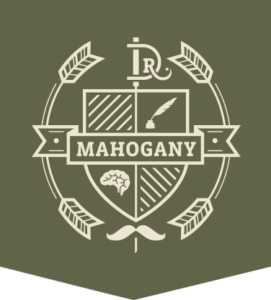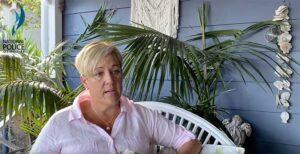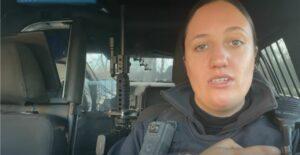Overview
The Biology of Trauma
An explanation of what happens in the body when we experience stress and how that relates to the ‘mind/body’ connection. We often think we can control the mind by being resilient however what really happens when the body does what it is build to do by our biological fight/flight/freeze stress response?
Burnout, the ingredients that cause stress
An outline of stressors that come with the job to assist in understanding why police are under the pump and the way triggers impact reaction versus response. This includes how the organization impacts police resilience.
The medical model verses person centred care
An explanation of the differences between psychiatry, psychotherapy and counselling to assist police and their families to understand the appropriate care to support their individual needs by making an informed choice.
Talking about Suicide
A sensitive conversation around suicidal ideation, which is an ultimate challenge for us all, how this can manifest and what to do if you, a family member, friend or colleague is struggling.
Reaching out for help
What are the options and how can we empower ourselves to live our best life.
Emotional awareness for managers
Information around how to identify and approach staff who are showing signs of burnout. A look at language and sensitivity when speaking with team members and how to use a person-centred approach rather than the penal system.
The role of Chaplains
An open discussion regarding the work of police chaplains and chaplaincy in general and how chaplains can be of support to serving and former police as well as how they assist and support families. This can include assisting when mental health issues arise as well as family crises, relationship breakdown and where there is illness or a death in the family.
Step-By-Step
Mental health professional support
Your doctor can refer you to mental health professionals including:
• psychiatrists
• psychologists
• counsellors
• social workers
• occupational therapists.
You can read about the different types of mental health professionals on the health direct website.
You can also use their find a health service tool to find one near you.
A mental health treatment plan lets you claim up to 20 sessions with a mental health professional each calendar year.
To start with, your doctor or psychiatrist will refer you for up to 6 sessions at a time. If you need more, they can refer you for further sessions. Health professionals set their own fees, so we may only cover some of the cost. Ask how much you’ll pay and what you’ll get back from us when you make your appointment. If they bulk bill, you won’t have to pay anything. If you have private health insurance, you may be able to get some money back. You can check with your insurer.
Help with costs
A mental health treatment plan lets you claim up to 20 sessions with a mental health professional each calendar year.
To start with, your doctor or psychiatrist will refer you for up to 6 sessions at a time. If you need more, they can refer you for further sessions. Health professionals set their own fees, so we may only cover some of the cost. Ask how much you’ll pay and what you’ll get back from us when you make your appointment. If they bulk bill, you won’t have to pay anything. If you have private health insurance, you may be able to get some money back. You can check with your insurer.
Rural and remote support
If you live in a remote area, it might be hard to see a mental health professional. You may be able to have a telehealth video consultation instead. You can claim for video consultation sessions with a mental health professional.
Ask your GP or mental health professional if they offer this service. You can also search the find a health service tool on the healthdirect website for mental health telehealth services.
Content for pathways to help
 30 Mar 2022
30 Mar 2022
Family breakdown and distress
Police Families are integral in supporting their loved one working in policing environments however police work may take a toll on the family unit.
 03 Apr 2022
03 Apr 2022
Fearless PTSD Australia and New Zealand
Resources, education, and published information about the latest national conversation of those working with communities effected by PTSD. Those with a lived experience are also invited to contribute by attending their biannual PTSD conference.
 24 Jun 2025
24 Jun 2025
Fortem Australia
Fortem Australia provides independent mental health and wellbeing programs and services for police officers and other first responders across Australia. That includes psychology and counselling sessions which are free for eligible first responders and their families, social connection activities, career management services and a range of wellbeing resources aimed at boosting mental health literacy and promoting help-seeking.
 17 Nov 2021
17 Nov 2021
Frontline Yoga
Frontline Yoga is available in NSW/ACT, SA and Qld either via face to face or online classes and aims to provide former and serving police with trauma informed and culturally aware yoga classes. These sessions are suitable for beginners and above and may assist with maintaining resilience, strength and connection for anyone living with post traumatic stress, depression or anxiety.
Head to Health
Digital mental health services provided by the Australian Department of Health focusing on apps, online programs, online forums and phone services for people seeking mental health information for themselves or for someone they love.
 18 Dec 2023
18 Dec 2023
Horse Aid
Horse Aid is an Australian for purpose and not-for-profit registered charity that provides unique, one-day and five-day healing horsemanship programs for Veterans, Serving Defence Personnel and First Responders who are suffering from mental health challenges due to their work serving our community.
 17 Nov 2021
17 Nov 2021
Injured Workers Support
Injured workers support provides Australia wide information and resources to people injured in the workplace. Resources include, your rights, workers compensation handbooks, networks and support services, fact sheets and useful links.
 17 Nov 2021
17 Nov 2021
Jane Jackson Career Management Coach
Based in NSW and available nationally, Jane Jackson, career coach offers culturally sensitive career coaching to assist police transitioning from policing into new careers via face to face and online support and advice, programs, and resources.
 07 Feb 2025
07 Feb 2025
Kellyville Private Hospital (Aurora)
Aurora Kellyville Private Hospital
Inpatient and day programs available to serving and former police for addictions, PTSD, anxiety and depression.
 21 Oct 2021
21 Oct 2021
Kids Helpline
Kids Helpline is a confidential and free 24/7 phone and online counselling service for young people and children from the ages of 5 to 25 which aims to keep young people free from harm. Website Information on safety for children and parents resources provide support when emotional help is needed at any critical moment.
Kookaburra Kids Foundation
Kookaburra Kids provides resources, programs, activity days, connectivity and statewide residential camps for children living in families impacted by mental illness. Children learn about mental illness via chat groups, connecting with others experiencing similar commonalities and participating in fun activities.
 21 Oct 2021
21 Oct 2021
Lifeline Australia
Lifeline provides 24/7 telephone crises and suicide prevention support to people feeling isolated, worried, anxious or having a difficult time. Information and support is also available for friends or loved ones with concerns about how to talk to or support someone in crises or who might be at risk of self-harm. Chat and text services are also available between 12pm and 6am daily with downloadable resources available via their website.
 17 Nov 2021
17 Nov 2021
Man Therapy
Resources including videos on topics that effect men or those with a man in their life they are concerned about. Topics include, addictions, anxiety, depression, divorce, relationship and sex, teenage children’s issues, sleep, trauma, grief and anger. First responders are included in videos and resources.

 Exit
Exit






